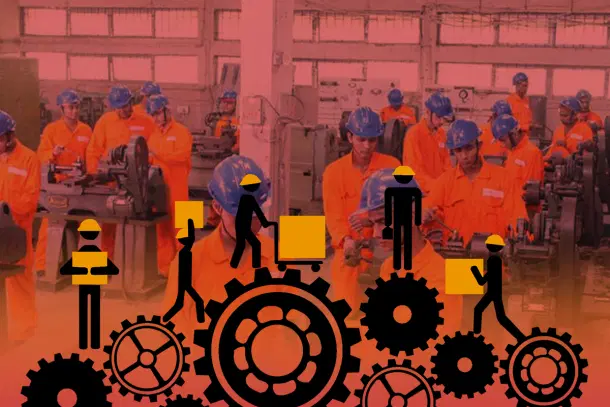News Brief
Explainer: What The Draft Delhi Industrial Policy 2025–35 Proposes For The Capital’s Future
Arjun Brij
Jul 22, 2025, 05:23 PM | Updated 05:23 PM IST
Save & read from anywhere!
Bookmark stories for easy access on any device or the Swarajya app.


The Delhi Government has released a draft version of its Industrial Policy for the period—2025 to 2035, outlining a strategic pivot toward clean, value-intensive industries to shape the future economic direction of the capital.
The policy leverages the city's key strengths—its highly educated workforce, advanced infrastructure, and booming services industry to pursue high-value, low-impact industries.
The administration aspires to establish Delhi as a regional nucleus for advanced technological services, including artificial intelligence, big data, biotechnology, IT and IT-enabled services, interactive gaming, animation, and sophisticated financial services.
These sectors have been identified to be best suited for Delhi, as they provide high returns, require less land and water, and have a zero environmental footprint.
Within this strategic framework, the policy intends to elevate Delhi to a pre-eminent location for knowledge-intensive sectors that catalyse innovation and enhance global competitive standing.
The hospitality sector remains a principal area of attention, given Delhi’s role as the principal entry-point for international visitors.
The strategy envisages expanding hotel capacity near key venues such as Pragati Maidan and Yashobhoomi, the introduction of serviced apartment complexes in industrial corridors, and a regulatory liberalisation designed to cultivate a more vibrant restaurant and bistro culture.
MICE (Meetings, Incentives, Conferences and Exhibitions) development will be stimulated through structured public-private partnerships and enhanced credit guarantees.
To mitigate the challenges posed by limited land availability, the policy promotes more efficient land use via increased floor space index (FSI) allowances, vertical development, and the regeneration of obsolete industrial estates.
Taking inspiration from Tokyo’s transit-oriented framework and the Hudson Yards project in New York, Delhi will be conceived as a network of mixed-use, eco-sensitive business precincts.
On the governance front, the goal is to render Delhi exceptionally conducive to enterprise. A Single Window Mechanism will centralise all regulatory approvals, applying automatic sanction provisions if agencies fail to respond within stipulated timelines.
Blockchain-enabled registries and real-time tracking will safeguard transparency, while the introduction of a comprehensive Ease of Doing Business Act is being actively debated.
Micro and small enterprises will be supported by a diffuse network of accredited Business Support Professionals—legal, financial and regulatory experts to guide firms through compliance, securing capital, and accessing government programmes. An online portal will list and manage these professionals.
Finally, an Industry Facilitation Centre will be established as a one-stop hub for investor and business support. A dedicated Policy Implementation Cell will monitor progress, supported by government and industry representatives to ensure timely execution.
The draft proposal is open for public and stakeholder feedback until 30 July.
Also Read: Harvard Battles Trump-Era Funding Cuts In Court Over Alleged Political Retaliation
Arjun Brij is an Editorial Associate at Swarajya. He tweets at @arjun_brij




